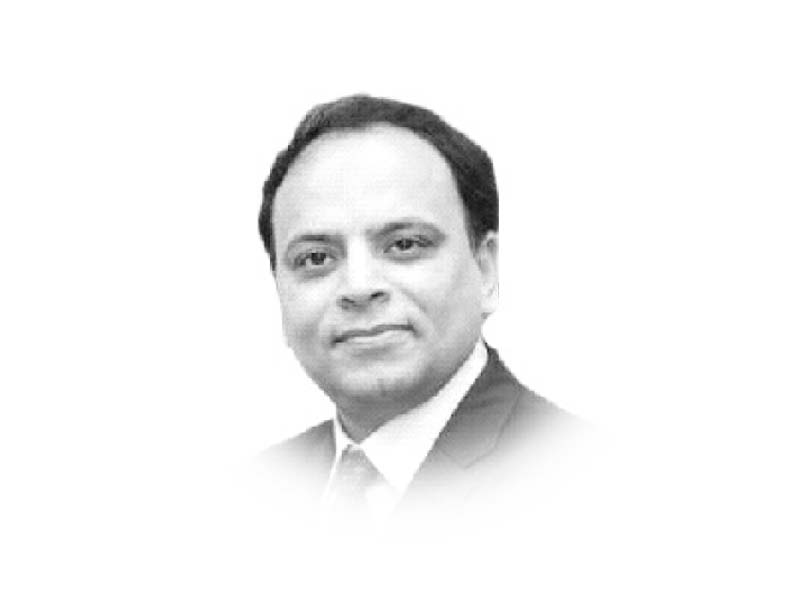
Urban planners have so far ignored the phenomenon of urban wealth creation considering it the jurisdiction of economists and financial managers. As a result, one could hardly see any section in cities’ master plans focusing on prospective sources of investment by the dwellers of future housing societies. No master plan discusses the possible sources of investors’ income and there is no meaningful analysis of the predominant trade and business trends in the cities. Although, a section on cities’ economy is scribbled in most master plans, it is mostly an impromptu formality. It is because the preparation of most master plans is sadistically carried out under the supervision of urban planners with little or no involvement of economic managers such as taxation authorities.
Unplanned rapid growth of housing societies, in and around big cities, is a manifestation of the rising demand of housing units in Pakistan. That means the demand of urban land is rising. As Pakistan is one of the most populous countries in the world, any investment in urban land is usually considered profitable because people need shelters. As a result, the powerful class of this country is directly involved in the construction and development of housing societies. In the name of development, this powerful class has made their own flimsy byelaws with a view to maximising their profits. Furthermore, the untaxed money is sporadically parked in the urban lands. Money launderers and criminals may find it convenient to invest their ill-gotten money in urban lands, instead of traditional trade and business, for profit maximisation within a framework of bad urban governance.
The macro level economic consequences of such investments in urban lands have gradually diminished the culture of business innovation. In other words, Pakistan’s powerful and wealthy class is directly relying on urban lands with a fixed mindset that has jeopardised business entrepreneurship in the country. Every new government finds it convenient to secure foreign loans to run government affairs. Owing to recent devastating floods, more than 1,300 people have died so far and more than 33 million are without shelter all over Pakistan. During such natural calamities, the governments are left with no other option but to seek international aid indicating economic vulnerabilities. The formal and informal business values, culture, habits and traditions are fast shifting from traditional trade and business to investment in urban lands. Consequently, the business of housing societies is deemed profitable.
The investor, therefore, considers it safe to buy land instead of establishing industrial units primarily because of rising cost of urban land. Today most people want to buy a spacious house in some big housing society so that (s)he could maintain a better lifestyle. This trend has indeed discouraged the parameters of ‘ease of doing business’ in Pakistan. Foreign investors want availability of low-cost land, infrastructure, electricity, gas, skilled labour and one-window tax operations so that they could produce globally competitive products. However, the culture of low density living, expanding housing societies and urban sprawl have made urban lands abysmally expensive, thus discouraging industrial and business investment and innovation. As Pakistan’s trade deficit mounts to $31 billion (FY 2020-21), the manufacturing sector is also facing serious challenges at the local and global levels. The most crucial factor is the trend of buying and developing urban land which appears to have emerged as a ‘resource curse’ in the country.
The resource curse refers to a concept in which economies, rich in natural resources, experience less favourable development outcomes than the resource scarce economies. The concept was better applied in countries rich in hydrocarbon reserves where rising exports demand triggers inflow of income that strengthens monetary exchange rate. Despite such conducive economic indicators, these countries still remain less developed because of the absence of business innovation and entrepreneurship. As far as urban land is concerned, Dieter Zinnbauer from Copenhagen Business School argues that bad urban governance exacerbates kleptocratic practices, widens inequality gap alongside further marginalising the urban poor. Therefore, more attention needs to be paid on cities as units of economic analyses. In this regard, urban land stands at the core because of being a parking heaven for money laundered through illicit exploitation, tax evasion and corruption. The mushroom growth of housing societies in and around big cities, as per Dieter’s view, is actually a conversion of money laundered through illegal means into assets clearly reflecting a society’s economic and moral trends. The same argument needs to be analysed in Pakistan’s perspective. Powerful housing societies are launching their projects in almost all big and small cities as the invincible demand for urban land use is very high in the country. The unidirectional investment needs to be diverted towards all major sectors of the economy so that Pakistan could attain economic stability in the long run.
Pakistan’s feeble economic growth rate vis-à-vis other major South Asian countries could possibly be because of unbridled and ruthless urban land use which has become a resource curse for the country. Furthermore, to overcome economic challenges in a sustainable manner, Pakistan needs to drastically bolster its exports volume. For this purpose, the investors’ mindset needs to be shifted away from investment in urban land to industrial undertakings. Pakistan’s ruling elite must understand and follow the principle that the supply of land is not unlimited. There has to be a peak point. Let’s intelligently plan an economic framework to fall back upon in the aftermath of this peak point. In line with the findings of international reputable research, there has to be vigorous institutional checks on the expansion of housing societies in the country. The culture of owning big houses must end. This way, Pakistan can divert badly needed investment towards innovative and sustainable businesses aimed at increasing exports alongside discouraging money laundering, illicit exploitation and corruption. Urban land is a natural resource and needs to be treated in a natural manner. All future master plans of cities should, therefore, discourage unplanned urban sprawl and low density living. Vertical expansion of cities could be a partial solution. Let’s not forget that cities act as engines of economic growth. If their master plans are not intelligently drafted, urban land may not only remain a resource curse but also transform Pakistani society into a complete kleptocracy.
Published in The Express Tribune, September 10th, 2022.
Like Opinion & Editorial on Facebook, follow @ETOpEd on Twitter to receive all updates on all our daily pieces.















1714222391-0/BeFunky-collage-(2)1714222391-0-270x192.webp)












1714129906-0/Clint-Eastwood-(1)1714129906-0-270x192.webp)









COMMENTS
Comments are moderated and generally will be posted if they are on-topic and not abusive.
For more information, please see our Comments FAQ